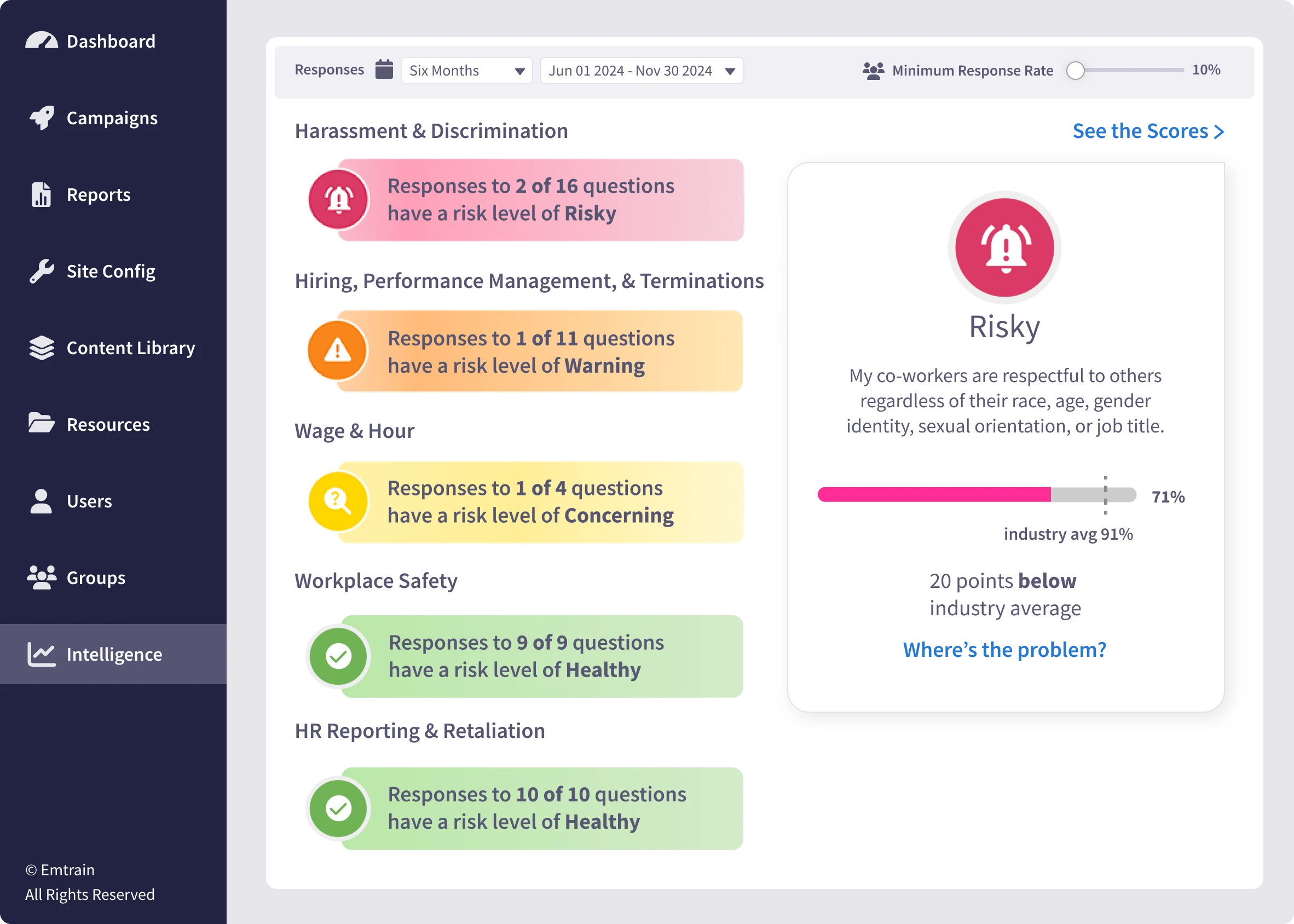Home » Concepts » Privacy & Security » PHI (Protected Health Information)
Protected Health Information (PHI) refers to any individually identifiable information related to a person’s health status, medical records, or healthcare payment that is collected, stored, or transmitted by a covered entity and protected under the Health Insurance Portability and Accountability Act (HIPAA). PHI includes information that can be used to identify an individual and relates to their physical or mental health, the provision of healthcare, or payment for healthcare services.
Emtrain’s harassment training course is engaging, interactive, and designed to spot and reduce EEO risk.

HIPAA was enacted in 1996 to improve the efficiency of healthcare delivery and protect sensitive patient information. Prior to HIPAA, there was no national standard ensuring the privacy and security of individuals’ health data. With the growth of electronic records and data sharing, HIPAA established clear rules for protecting PHI, assigning responsibility to healthcare organizations and their business associates.
PHI includes any health information that can identify an individual and is created or received by a healthcare provider, health plan, employer, or healthcare clearinghouse. It covers a wide range of identifiers when linked with health data, such as names, addresses, birth dates, Social Security numbers, and more.
Medical records and clinical notes
Insurance information and billing details
Appointment records and prescription histories
Diagnostic images (e.g., X-rays) tied to patient names
Email communications about an individual’s treatment
Protecting company health information, including PHI, is a shared responsibility across the organization. Senior leaders must establish clear policies and ensure that the organization complies with both federal HIPAA standards and applicable state laws that may impose stricter privacy protections.
Every employee who handles PHI — from HR professionals administering employee health plans to IT teams safeguarding systems — plays an important role in maintaining privacy and security. Additionally, HIPAA’s privacy and security requirements apply to business associates, such as vendors or contractors who process PHI on behalf of a covered entity, making it critical for organizations to establish compliant agreements and monitor third parties.
Companies must also stay informed of state-specific privacy laws, which sometimes go beyond HIPAA’s baseline protections. For example:
California’s Confidentiality of Medical Information Act (CMIA) imposes additional protections on medical data held by employers.
New York’s laws enhance breach notification requirements for healthcare-related data.
Other states may regulate the collection, storage, or disclosure of certain health-related information even outside of traditional healthcare contexts.
Failure to protect PHI can result in significant penalties under both federal and state laws, as well as reputational harm and loss of trust. Employers should ensure regular employee training, up-to-date policies, and robust practices to safeguard sensitive health information at all levels.
Organizations that collect or handle PHI must implement robust safeguards to maintain privacy and security, including:
Additionally, companies must ensure third-party vendors handling PHI comply with HIPAA and report breaches promptly.
Emtrain provides training and resources to help organizations understand and meet their obligations under HIPAA. We help reduce the risk of violations, improve staff awareness, and ensure proper handling of sensitive health information.
Course: HIPAA Training
Protect your organization and clients by educating employees on HIPAA requirements, privacy rules, and best practices for handling PHI.
Checklist: Common HIPAA Security Rule Violations
A practical checklist to help HR professionals and managers understand common pitfalls and avoid HIPAA violations.
Blog: Addressing Common HIPAA Questions in HR: A Comprehensive Guide
Answers frequently asked questions about HIPAA compliance from an HR perspective.
Blog: Ensuring HIPAA Compliance in the Workplace: An HR Perspective
Learn about how HIPAA applies in workplace settings, key responsibilities, and compliance strategies.
Blog: HIPAA and Cybersecurity: Safeguarding Patient Data
Explore the relationship between HIPAA compliance and cybersecurity best practices for protecting patient information
Video: Watch our Video Preview below on “How PHI is used to Identify Individuals”